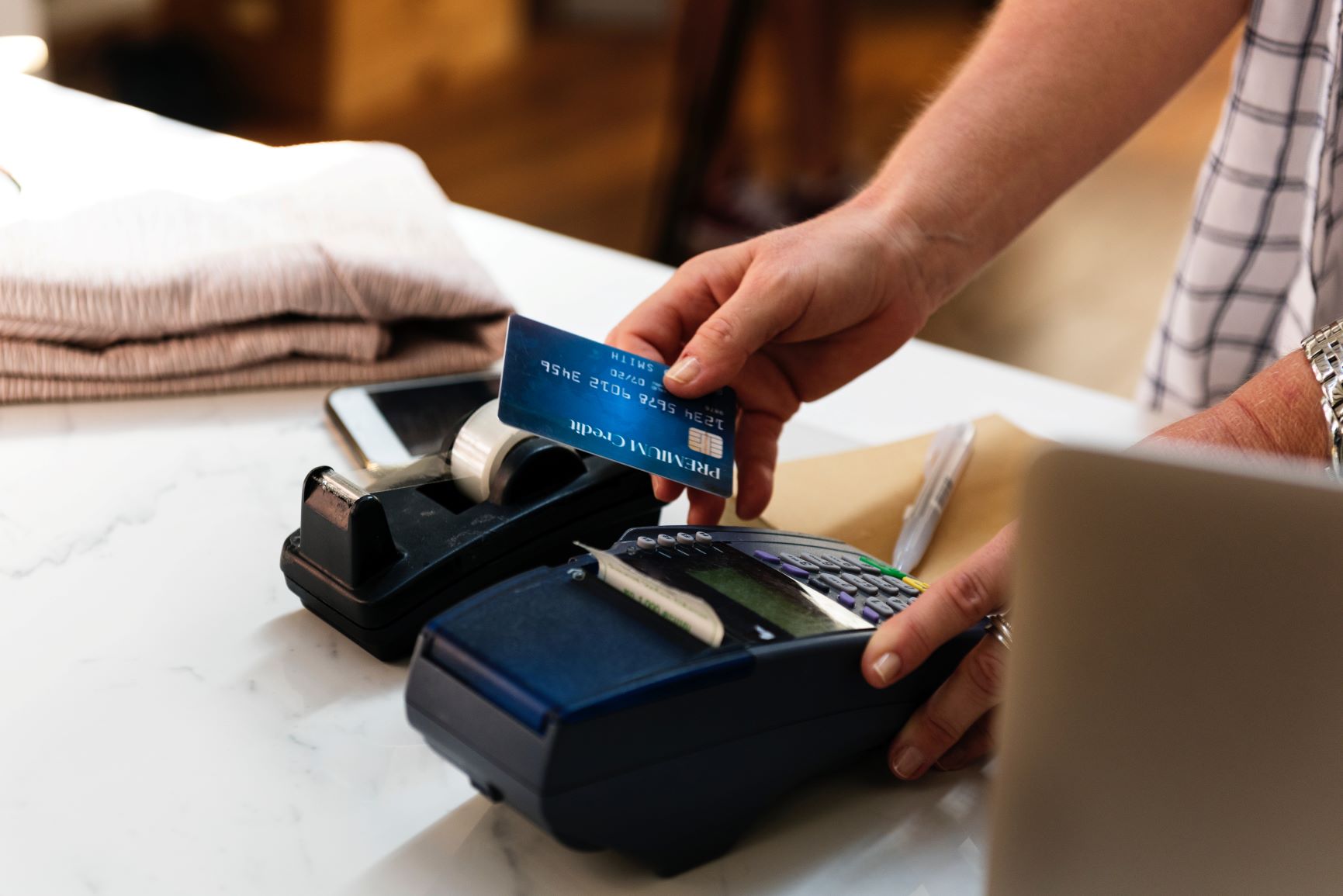For some people, getting a loan can be tricky. Maybe you’ve made some mistakes in the past, and have developed a bad credit history. Maybe this is your first time applying for credit, and you don’t have any credit history at all. If this applies to you, a guarantor loan could be a handy solution. But what is a guarantor? And how does any of this work? Keep reading to find out 10 things you definitely should know about guarantor loans.
What's Included?
What is a guarantor loan?
Let’s cover the basics. A guarantor loan is like an unsecured personal loan, with one key difference – the loan is ‘guaranteed’ by another person. This just means that someone else backs up the borrower by agreeing to step in and repay the loan if the borrower can’t. This helpful soul is called a ‘guarantor’. As long as the borrower repays the loan on schedule, the lender will have no reason to involve the guarantor.
How does a guarantor loan work?
Guarantor loans work by making doubly sure that the lender will get back the money owed. This is because there is less risk to the lender if there’s another person they can take repayments from (if worst comes to worst).
This can be helpful if you are someone with a bad or limited credit history. If you’re close to someone with a better credit profile than you. This person can sponsor you and boost your chance of getting approved for a loan.
Guarantor loans can be tailored to the borrower’s specific needs. For instance, the loan can be big or small, and the repayment period can vary in length. Often they can be more affordable than other loans available for a poor credit history, as the guarantor takes away some of the risk to the lender.
Whats good about guarantor loans?
The best thing about guarantor loans? They can help to boost your creditworthiness if you make your repayments on time. With a third party agreeing to take on the risk for the lender, someone with bad credit can prove they are a trustworthy borrower. This also allows them to rebuild their credit report. In the future, they can then apply for an affordable loan or credit card, this time without needing a guarantor.
Who can be a guarantor?
Legally, anyone over 18 can be a guarantor. But taking on responsibility for someone’s debt is not a small favour to ask. Because of this, a guarantor will usually be a relative or close friend. Its best to do this with anyone who has a strong relationship to the borrower. They’ll need to trust you enough to be prepared to cough up if you can’t. Let’s face it – you wouldn’t back up a loan for that one weird guy in your office…
What are the legal restrictions?
There aren’t many legal restrictions on who can be a guarantor. However, lenders do have their own requirements for who they’ll accept. These can vary, but in general, they will need to be a UK resident, and ideally a homeowner. They also will need to show they have a good credit history. As well as having enough income or assets to cover the debt if the borrower can’t make payments.
The responsibilities of a guarantor
When someone agrees to be a guarantor, they take on a level of responsibility for the loan. This shouldn’t be taken lightly! Once a guarantor signs on the dotted line, they take on a financial obligation to repay the loan if the borrower defaults.
What happens if the borrower gets in trouble?
It’s very important that everyone involved understands this. If the borrower gets into trouble or struggles to repay the loan themselves, the guarantor has to step in. This means that they must have the money available to back up their friend or relative if needs be.
If both the borrower and guarantor don’t make a payment, the lender will report this, and it gets recorded on the credit report of both parties. Even if the guarantor has a strong credit history from paying off their own debts in the past, their credit report is at risk if they can’t cover the loan.
Things to consider before becoming a guarantor
Because being a guarantor is a serious commitment, there are a few things worth thinking about before you agree.
Consider the risks
One of the most vital things to consider is the financial and personal risk to you. If the borrower can’t repay the loan and you need to instead, can they or will they pay you back after? You could be out a big chunk of money, so you’ll need to think about whether you can get this back. You will also need to consider if this will ruin your friendship with the borrower.
It’s easy to get sensitive about money, so getting family or friends to pay you back can be a touchy subject. You may want to think in advance about whether they’ve got a steady job, how it worked out if you’ve lent them money before, and if they’re normally a trustworthy person.
Make a personal judgment
The borrower may have a poor credit history and want to rebuild their credit profile. In this case, it’s up to the guarantor to decide the risk. If you know your friend or relative will be able to make the repayments, you can help them to improve their creditworthiness. It will then be easier in the future for them to get credit without needing a guarantor.
If the borrower wants a guarantor loan for a specific expense or purchase, you might also want to think about how pressing it really is. If it’s not for something urgent, it could be best for your friend to spend that time saving rather than bringing you on board. By contrast, for something that needs immediate attention, such as a funeral, waiting won’t be an option. In this case, a guarantor loan may be necessary.
Do guarantors get credit checked?
For a lender to approve a guarantor loan, they need to know for sure that the guarantor is financially stable and hasn’t struggled to pay their own bills in the past. This means they will need to run a ‘hard check’ on the credit report of the person guaranteeing the loan.
This check will be visible on their credit report for future lenders to see. Too many hard credit checks in a short period of time looks bad to lenders. This means it’s important for the chosen guarantor to be creditworthy, so they won’t get rejected and damage their credit report.
You can find out how lenders see you before applying, whether you’re a borrower or guarantor, with your free Credibble account.
Does being a guarantor show up on your credit report?
As we’ve already covered, the check a lender runs to assess a guarantor will show on their credit report as a hard credit search. This is important to know, but shouldn’t be much of a problem. What’s more critical is what happens if both the guarantor and borrower miss repayments. In this case, the guarantor gets treated exactly the same as if they took the loan out themselves. They end up with missed payments recorded on their report, which can hurt their chances of getting credit in the future.
You should also know that some (but not all) lenders register the loan against the credit report of both the borrower and the guarantor. This means the agreement does show up on the guarantor’s credit report as a ‘joint loan’.
Can being a guarantor affect your own borrowing chances?
This is a tough one, because it depends on which lender you use. If the lender registers the agreement on the guarantor’s credit report it can affect their ability to get a separate loan until the guarantor loan is paid.
Lenders look at your ‘affordability’, which relates to how much you spend on repayments. If the guarantor loan is recorded on your credit report, regardless of if you’re the main borrower, this gets taken into account.
Even if there is little chance the main borrower won’t make repayments, the new lender may question if you can make payments on top of the original guarantor loan. This can therefore affect your chances when applying for a mortgage or any other major loan.
If you use a lender who doesn’t register the loan against the guarantor, it’s a different story. In this case, the only thing that will seriously harm the guarantor’s credit report is if both they and the original borrower fail to repay the loan.
Can you stop being a guarantor on a loan?
The short answer? Nope. Being a guarantor is a big commitment, and once the agreement is made and the loan is paid out, you can’t change your mind.
Depending on the agreement, guarantor loans can last up to 5 years. A lot can happen in a few years, so understandably someone could have a change of heart and want out. But if you’ve agreed to start with, you’re locked in for the whole thing. That’s why it’s so important that there’s trust between the borrower and guarantor. You’re stuck together until the end of the agreed period of repayment!This is because the person guaranteeing the loan is key to whether the loan was approved in the first place. Their credit history, employment status, age and affordability all play a part in securing the terms of the loan. If you replace this person with another, they won’t have the same credentials, and this changes the risk to the lender.
What if I want to get out?
If you’re desperate get out of being someone’s guarantor, the only way to do this is for the borrower to pay the loan off early. This effectively ends the agreement. Most guarantor lenders will let you repay a loan early, but they may charge extra interest for this.
What is the guarantor process?
A guarantor loan application is slightly different to a typical loan. Lenders need details from both the borrower and the third party guaranteeing the loan. The guarantor’s creditworthiness will affect whether the loan is approved or not.
Each lender will have their own unique process and way of getting information. But as an overview, the process should look something like this:
Basic Information
First, the borrower will need to submit a standard form, telling the lender what they are hoping to borrow and how long for. They will also need to provide some initial details, like their name, email address and mobile number, and sometimes the purpose of the loan.
T&Cs
Next, the lender will email or call to discuss and confirm the terms and conditions of the loan. If the communication is via email, they may ask for the applicant to sign the document electronically. This is all to check they actually exist and are serious about taking out the loan.
Bringing in the guarantor
If the lender has approved the borrower so far, they’ll ask for the details of the guarantor. For a speedy application, it helps to have the guarantor ready so they can give their basic details (including their name, address and contact information). Choosing the right guarantor is important because it affects your chances of approval. Lenders like to see that the guarantor has a good credit history, and ideally is a homeowner.
Checks
The lender then will run some checks. They will usually call the borrower and guarantor to confirm they both agree and understand the arrangement. The lender also will run credit and affordability checks to decide their eligibility. The guarantor should be in a stronger position with their credit than the borrower to prove they can back up the loan.
Approval
Once the borrower and guarantor pass all the checks, the lender will then approve the loan. They both can now pass over their debit card details. Usually the lender will transfer the money to the guarantor, giving a last chance to change their mind.
There is a ‘cooling off’ period of around two weeks, in which the guarantor can send the loan amount back. But if they’re happy to move forward, they can transfer the money over to the borrower in a lump sum or installments, depending on what they’ve agreed.
Voila, now you know how guarantor loans work! If you’re keen to apply for this kind of loan, you can see offers tailored to your individual needs using your Credibble account.
Credibble offers two fabulous solutions
If you’re preparing to take a mortgage, never apply until you’ve tried our unique and FREE Credibble Home app. Our smart technology will tell you what you need to fix so you avoid rejection. The app predicts when you will be able to buy, for how much and tracks your month-by-month progress to mortgage success. We’ve even added your own mortgage broker, so you get the best deals available.
More focused on your credit rating? Well, get started for free with Credibble’s 24- Factor Credit Check to truly help you improve your creditworthiness and how lenders view you. (Remember: lenders don’t use your credit score! We’ll show you what lenders look for and how to get your credit report in the best shape possible).
Last updated by Oliver Macmillan, April 2022









